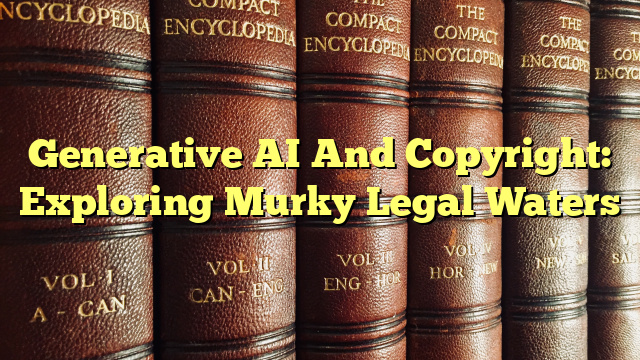Introduction
Generative artificial intelligence (AI) technologies are revolutionizing the way that works of authorship are created and disseminated. But the legal implications of these technologies are largely unknown. This article will explore the potential implications of generative AI and copyright law. It will address the questions of whether generative AI violates copyright laws, what the criticisms of generative AI are, what an example of generative AI is, and what the ethical issues with generative AI are.
Does Generative AI Violate Copyright Laws?
What are the Criticisms of Generative AI?
What is an Example of Generative AI?
What are the Ethical Issues with Generative AI?
Does Generative AI Violate Copyright Laws?
The answer to this question is not clear cut. On the one hand, there are arguments that generative AI does not violate copyright laws. This is because the works created by generative AI are not exact copies of existing works but rather are new and original works. Thus, they are not copyrightable as derivative works. On the other hand, there are arguments that generative AI can violate copyright law if it creates works that are substantially similar to existing copyrighted works. This is because in such cases the generative AI is essentially creating a copy of the existing work and thus infringing on the copyright of the original work.
What are the Criticisms of Generative AI?
The primary criticism of generative AI is that it can be used to create works that are of questionable quality or that are plagiarisms of existing works. This is because the generative AI is limited by the data fed to it and can only create works based on what it has seen before. This can lead to works that are unoriginal and that lack creativity. Additionally, critics have argued that generative AI can be used to automate the creation of derivative works and thus circumvent copyright laws. This could lead to the widespread infringement of copyright laws.
What is an Example of Generative AI?
One example of generative AI is a program called DeepDream, created by Google in 2015. DeepDream is an algorithm that takes an image as input and applies a deep learning algorithm to it in order to create an abstract image. This abstract image is then used as input for another algorithm which creates a new image based on the abstract image. This process can be repeated multiple times in order to create a complex, highly detailed image. The resulting images created by DeepDream are often surreal and dream-like.
What are the Ethical Issues with Generative AI?
The use of generative AI raises a number of ethical questions. One concern is that generative AI could lead to the automation of the creative process, eliminating the need for human creativity and thus eliminating jobs. Additionally, there is the concern that generative AI could be used to plagiarize existing works or to create works of questionable quality. Finally, there is the potential for generative AI to be used to create works that violate copyright laws, leading to potential legal issues.
Conclusion
Generative AI is a rapidly advancing technology that has the potential to revolutionize the way that works of authorship are created and disseminated. However, the implications of generative AI on copyright law are still unclear. While generative AI may not necessarily violate copyright laws, there are a number of potential ethical and legal issues that should be considered when using these technologies. It is clear that more research and discussion is needed in order to understand the implications of generative AI on copyright law.


The intersection of generative AI and copyright laws is an intriguing area that warrants exploration. As this article highlights, there is an abundance of potential complications that must be addressed. This is definitely an area that should not be overlooked.